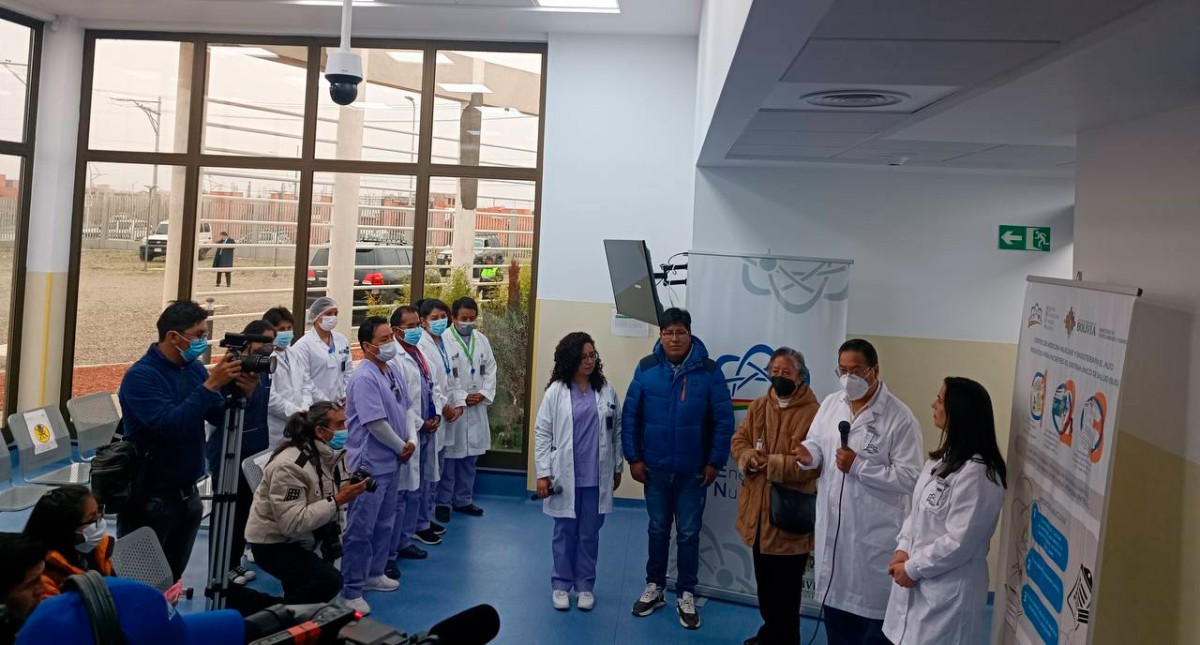 Bolivia’s radiopharmaceutical production complex, built by Rosatom for the Bolivian Atomic Energy Agency (ABEN), has begun supplying radiopharmaceuticals to Bolivian clinics. A ceremony marking the start of deliveries to Bolivian clinics of fluordezoxyglucose, was held at the Centre for Nuclear Medicine & Radiotherapy (CNMR), designed to treat patients with cancer. It was attended by Bolivian President Luis Alberto Arce Catacora.
Bolivia’s radiopharmaceutical production complex, built by Rosatom for the Bolivian Atomic Energy Agency (ABEN), has begun supplying radiopharmaceuticals to Bolivian clinics. A ceremony marking the start of deliveries to Bolivian clinics of fluordezoxyglucose, was held at the Centre for Nuclear Medicine & Radiotherapy (CNMR), designed to treat patients with cancer. It was attended by Bolivian President Luis Alberto Arce Catacora.
The CNMR is part of the Centre for Nuclear Research & Technology (CNRT) built with Russian assistance in El Alto at an altitude of 4000 metres above sea level. The facility will provide the Bolivian healthcare system with its own production of a whole range of radiopharmaceuticals for conducting clinical trials of more than 5,000 patients a year. The CNMR is equipped with a cyclotron (particle accelerator).
“Today our country has taken a big step forward, said President Catacora. “Now we have not only this nuclear medicine centre with the most modern infrastructure, but also the ability to independently produce radiopharmaceuticals for the diagnosis of cancer, which until today we had to import. Bolivia now has such advanced technologies so that we can even export these medicines to neighbouring countries.”
Rosatom’s First Deputy General Director & Director for the Development and International Business Kirill Komarov noted that “together with our Bolivian partners, we have done a huge amount of work”. He said the next stage is to expand the range of manufactured radiopharmaceuticals and to export these to neighbouring countries. With the help of specialists, Rosatom Bolivia today becomes one of the leading states in the region in the field of nuclear technology », – said.
The CNRT construction project is being implemented by ABEN in cooperation with JSC GSPI (part of the control loop of JSC Rusatom Overseas). The first and second stages of construction have been completed – the CNMR and the associated multipurpose irradiation centre (MCC), which is equipped with an industrial gamma plant. The MMC improves food security and extends the shelf life of various types of crops. It can process more than 70 tons of products a day to maintain its quality and consumer properties, as well as to increase export volumes over long distances and to other countries. The MCC can also be used in the healthcare sector to sterilise a variety of medical devices.
In parallel, construction and installation work continues on the third and fourth stages of the centre, which include the reactor complex and laboratory buildings. In the summer of 2021, first concrete was poured for the building where the first research reactor in Bolivia will be located. The target completion date for the project is 2025. The contract for the construction of the CNRT was signed in 2017 but implementation was frozen for several years due to political developments in Bolivia.
Image: A ceremony marking the start of deliveries was held at the Centre for Nuclear Medicine & Radiotherapy (courtesy of Rosatom)






